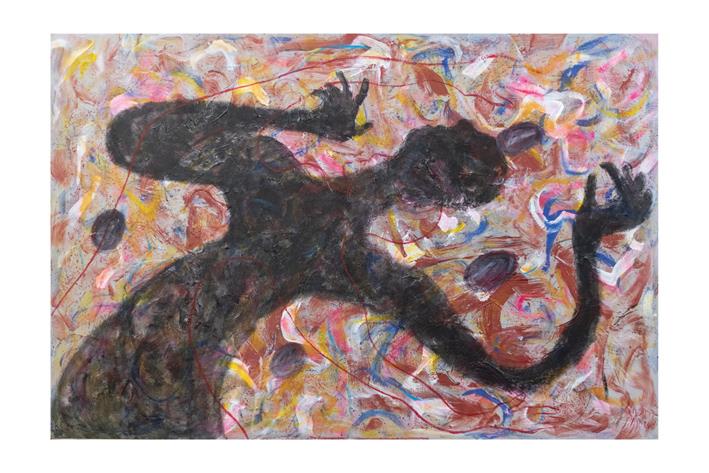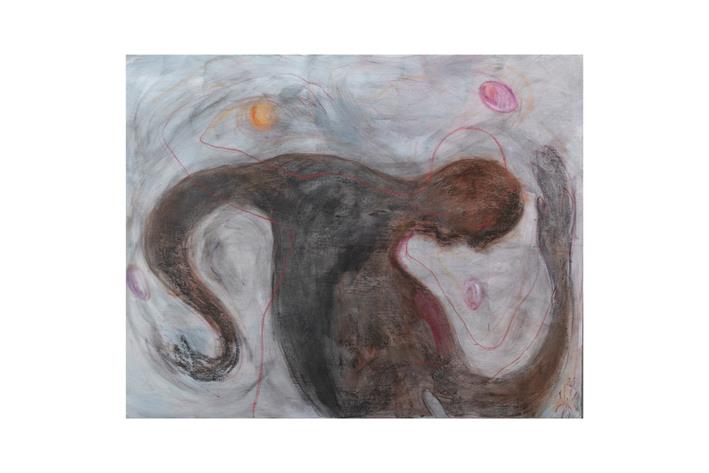Rhythm of Fading, a solo exhibition by Maltese artist Joseph Farrugia, is open at Palazzo de La Salle in Valletta. Featuring 30 works created over the past two years, the exhibition explores themes of time, rhythm and the balance between chaos and order. A seasoned artist, Farrugia employs a variety of media - including soft pastels, charcoal, acrylic and oil paints - to bring these concepts to life.

Farrugia explains that the medium he uses in these specific artworks is intimately tied to the subject matter and emotional tone of each work. "The medium I use depends on the theme I want to explore and the mood that I am in," he elaborates. "For example, I find charcoal to be more spontaneous and intense, whereas painting in oils or acrylics is generally more calculated, especially if applied in various layers and glazes."

In Rhythm of Fading, Farrugia delves into the concept of time's passing and its increasing significance in his life. "As I get older, the sense of time passing, and the rhythms involved in such passing, become more pronounced. This exhibition is a reflection of this exciting stage of my life," Farrugia muses.

The theme of the exhibition revolves around the figure of the juggler, a metaphor for balance, control and the rhythmic nature of life. Farrugia's paintings depict the juggler's craft, an interplay of order and disorder, expressed through dynamic techniques that contrast calculated precision with fluid, spontaneous movement. "This exhibition is an evolution of my previous works, with a focus on the passage and nature of time," says Farrugia. "The juggler represents the interaction of order and balance, while the random and chaotic movement is displayed in the paintings through the various techniques used."
"Visitors will experience the progression of the works as they move from one room to the next, beginning with the juggler in an urban setting and ending in a personal cosmos," explains Adrian Mamo, president of the Malta Society of Arts. "While each painting is a standalone work of art, together they form a narrative that invites viewers to reflect on existence, consciousness and the passage of time."
Rhythm of Fading is not just a visual journey, but also an exploration of deeper philosophical themes inspired by Farrugia's own reflections and research in literature and music. The exhibition invites visitors to engage with the artwork on both an aesthetic and intellectual level, creating a space for personal contemplation and interpretation.
"The collective impact of the works creates a narrative that hopefully provides the visitor with an experience and insight into the very nature of being," Farrugia concludes. "The paintings are meant to please the eye, but also offer scope for further reflection that may extend beyond the visit to the gallery."
Rhythm of Fading runs till 21 November at Palazzo de La Salle, Valletta. Opening hours are Monday to Friday 9am to 7pm; Saturdays 9am to 1pm. Entrance is free.
For more details about the exhibition please visit www.artsmalta.org, www.facebook.com/maltasocietyofarts or www.facebook.com/events/1364741521165768.
Joseph Farrugia (b. 1959) is a Maltese visual artist who has been engaged in drawing and painting throughout his life. In addition to his artistic practice, he has taught art at post-secondary level and currently lectures on visual literacy for marketers at the University of Malta. Farrugia is also known for his work as an economist, specialising in industrial relations and social dialogue. His dual career reflects his wide-ranging interests in both the structural aspects of society and the inner workings of human consciousness.
Farrugia has exhibited his work in numerous venues including the National Museum of Fine Arts, the National Museum of Archaeology, Spazju Kreattiv, the Palais des Nations in Geneva, Splendid Gallery, Iniala Gallery, and most recently at Muza in 2023. He has also participated in various collective exhibitions in Malta.
His art is introspective, often addressing existential themes rooted in a lifelong search for identity. Farrugia's works provoke deep questions about the nature of existence, inviting viewers to reflect on the complexities of being and the essence of the human experience.